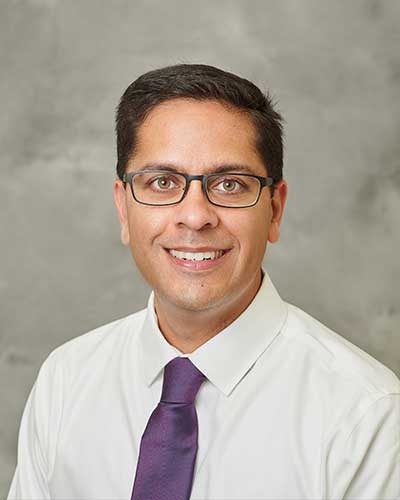Spring Cleaning for the Heart
 By Ameet Parikh, MD, Cardiologist at Pacific Medical Centers
By Ameet Parikh, MD, Cardiologist at Pacific Medical Centers
Spring’s glorious colors and sunshine often inspire us to get our lives in order—declutter, organize and clean. Suddenly, we can’t wait to tackle that patch of weeds or the bulging tool drawer in the kitchen! Why not take that same energy and refresh your heart-healthy habits? I encourage everyone to take control of their cardiac health.
Explore these four heart-healthy projects and make a “SMART” goal or two—Specific, Measurable, Achievable, Realistic and Time-bound.
Project 1: Eat healthier
Diet is a key factor to overall heart health. While it’s okay to indulge every now and then, the bulk of your meals should be made up of whole grains, fruits and vegetables. In general, you should minimize sodium, unhealthy saturated and trans fats, and refined grain products (such as white bread, pasta and pastries). To spring clean your diet, try swapping in oils made from olive, fish, avocado, nut and seeds, which are healthier monosaturated or polyunsaturated fats. Eat a freshly prepared meal at home, since restaurants tend to have a heavy hand with the saltshaker. Finally, control portion sizes by using a small plate or bowl. It will help you avoid the temptation to overeat.
Sample SMART goal:
“For two meals this week, I will replace white bread or pasta with whole-grain tortillas, brown rice or a yam.”
Project 2: Get regular exercise
The American Heart Association recommends a total of 150 minutes of exercise per week, including muscle-building activities like resistance or weight training at least two days per week. Let’s break this down into more realistic, achievable tasks. First, remember that any amount of exercise is better than none. If you spend most of your day sitting, set a timer a few times a day to remind yourself to get up and move. This can be as simple as a walk around the office, up and down the stairs, a sanity speed walk in the neighborhood, or even a few stretches on the floor.
Sample SMART goals:
“At every lunchtime this week, I will walk for 15 minutes before or after my meal.”
“By Thursday, I will contact my primary care provider for help crafting a suitable exercise routine.”
Project 3: Sleep more and better.
A lack of sleep can lead to a number of long-term health issues, including an increased risk of cardiovascular and coronary heart disease. It’s vital to try and achieve at least eight hours of sleep per night by establishing a sleep schedule. Also, avoiding caffeine and alcohol late in the day can help you get more hours at night.
Sample SMART goal:
“I will shut off all screens and do something quiet for 30 minutes before bedtime for the next week.”
Project 4: Stop smoking
Tobacco and nicotine in all forms is dangerous for overall cardiovascular health and should be avoided entirely. Even one cigarette a day can be detrimental to your health, as can e-cigarettes. The good news is that it’s never too late to stop, and your doctor can provide tips and resources to help you along the way.
Sample SMART goal:
“Before Friday, I will set up an appointment with my primary care provider to design a good tobacco-cessation plan for me.”
Get support for your heart-healthy life
Be sure to evaluate and reset your goal as needed. It’s also helpful to identify personal roadblocks—maybe lunchtime is your weakness, or a coworker is sabotaging your tobacco-free efforts.
Your medical team can give you vital information and support. Schedule a visit with your primary care provider or cardiologist to review your medical history, check your cholesterol and blood sugar levels, and determine your risk. I believe everyone can make healthy lifestyle changes that will help build a strong heart for years to come.
Be sure to evaluate and reset your goal as needed. It’s also helpful to identify personal roadblocks—maybe lunchtime is your weakness, or a coworker is sabotaging your tobacco-free efforts.
Your medical team can give you vital information and support. Schedule a visit with your primary care provider or cardiologist to review your medical history, check your cholesterol and blood sugar levels, and determine your risk. I believe everyone can make healthy lifestyle changes that will help build a strong heart for years to come.
Dr. Parikh is a Cardiologist at Pacific Medical Centers. Meet our full Cardiology team and learn about our primary care services.



